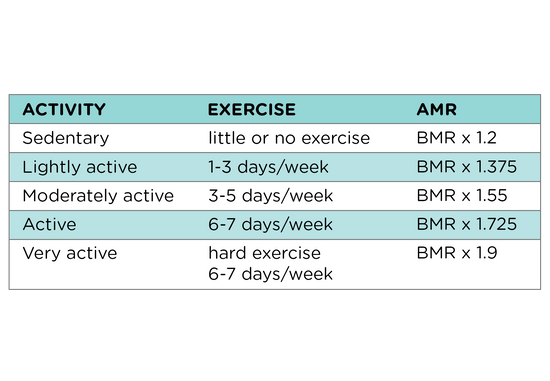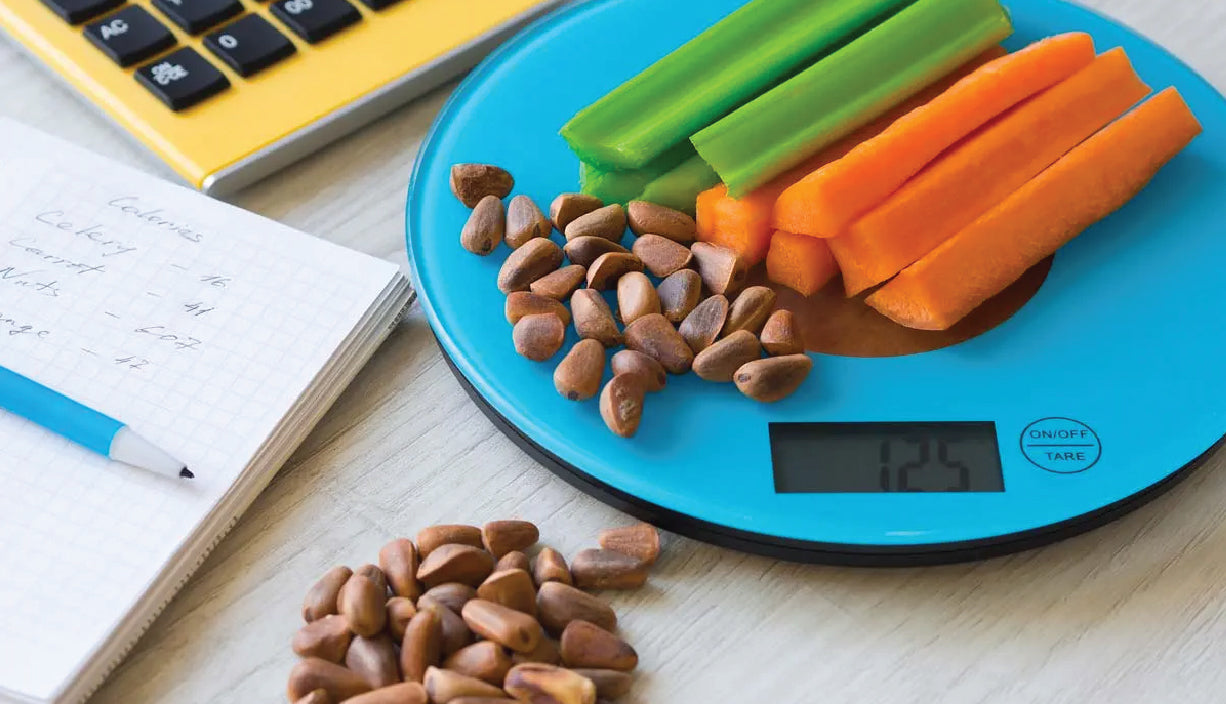What You Need to Know
We constantly hear people talk about counting calories and wanting to lose weight, but what is a calorie, and why is it so essential to us?
Our bodies require energy or calories to execute essential functions such as breathing, digestion, circulation, and other daily activities such as sitting, sleeping, exercising, and so on. The food we consume provides us with the energy our bodies need. That energy is measured in 'calories'.
Use the calorie calculator to estimate or gain insight into the daily calories your body needs to lose weight, maintain your current weight or gain weight.
Calorie Calculator
The Importance of Counting Calories
Assessing our calorie intake is critical since counting calories tells you if you consume too many or not enough calories. It's also necessary for keeping a healthy body weight. Regular excess calorie consumption indicates that the extra energy intake will be stored as fat cells in the body.
Simultaneously, not eating enough calories implies that you are depriving your body of the necessary calories to function, which might interfere with your body's regular functioning. It can also lead to weight retention and a slower metabolism. This state is referred to as starvation mode. Our bodies are geared for survival - so if there's not enough energy coming in via your daily food intake, your innate and intuitive senses will send it into storage mode. You are making for a weight loss battle every time.
Calorie counting after Weight Loss Surgery - Do we or dont we?
The number of calories for Weight Loss Surgery (WLS) patients need to eat is difficult to estimate - as every person is different, and the amount you need will change as time and weight go by. For example, your portions will increase as time goes by after surgery, which is normal.
So for Bariatric Surgery patients, you should focus more on the following:
- Quality rather than quantity - consuming healthy, nutrient-packed calories that meet your daily needs for Protein, fats and carbs.
- Eating to your appetite: Focusing on how you are eating – slowly, mindfully and enjoying your food.
- Building healthy habits and a good relationship with food will last a lifetime
- Being consistent in following the four food stage

- Your dietitian will determine how long each specific food stage lasts as you progress and heal after your operation and what you can eat and drink. All stages emphasise the importance of controlling your portions. Those food stages are
- • Liquids
- • Purees
- • Soft Foods
- • Solid Foods
- When well established, the habit will help with weight loss and prepare you for how you'll eat for the rest of your life. Your surgeon, dietitian and psychologist will support you throughout your Post-Bariatric Surgery.
Calorie Counting Made Easy!
Calculating how many calories you should consume may be difficult since it relies on various factors - your age, gender, size, and daily activity level.
To calculate the calories your body needs, you first need to find two values- BMR (i.e. basal metabolic rate) and daily activity level. The calculations for men and women will differ.
How to calculate your daily calorie intake in 2 easy steps
Calculate your daily calorie intake.
You can use a calculator and your most recent weight and height in kilos and cm.
-

1. Calculate your BMR
You'll need to calculate your BMR* (basal metabolic rate) using the Mifflin St. Jeor equation. It's one of many equations used but is commonly researched as the closest estimate.
*BMR is the number of calories your body burns at rest.
-

2. Calculate your AMR
Next, you must account for your daily activity level. Multiply the BMR calculated above by your metabolic activity rate (AMR). This number ranges from 1.2 for being sedentary to 1.9 for being very active.
The Best Calorie Calculator
Depending on your goals and how you want to track them, and if you wish to lose, gain or stay at your current weight will determine how many calories you burn every day, which will help you decide on your daily calorie intake.
Enter your details in the calorie calculator.
Counting calories for weight loss will remain a widely debatable topic. However, more is needed to consider calorie counting as a viable method of losing weight and maintaining a healthy weight.
Calorie counting gives people a better understanding of what they eat and how many calories they burn. Consequently, it can be more accessible for people to change their eating habits and exercise routines to achieve their goals.

- Your caloric needs, however, are determined by your
- • Age
- • Height
- • Weight
- • Gender
- • Amount of exercise
It might be challenging to evaluate your calorie requirements because so many variables exist. As a result, it is important to utilise a calorie calculator to assess your calorie needs. Then you can make your own observations about whether you need more or fewer calories to get the intended result. This takes patience, introspection, and a willingness to experiment and tweak as you go along.
Frequently Asked Questions
-
How do you calculate calories for weight loss?
The number of calories you require daily is the sum of the calories your body needs to function normally.
The calories used by physical activity throughout the day and the energy your body extracts from the food you eat.
-
How many calories should I eat in a day?
Your gender, height, weight, age, and daily activity level determine the calories you should consume daily. It also depends on whether you want to lose weight, gain weight, or stay healthy.
Aside from that, you must track your body's calorie requirements based on your BMR. Use a calorie calculator to make things easy for yourself.
-
What is my calorie intake?
Use our calorie calculator to estimate the daily calories your body needs to lose weight, gain weight or maintain your current weight. Then, play around with what works for you and adjust as you go.
You might be interested
Your cart is empty
Continue shoppingWelcome to BN Healthy!
The Best Website For Your Location Is Here.
- Choosing a selection results in a full page refresh.


